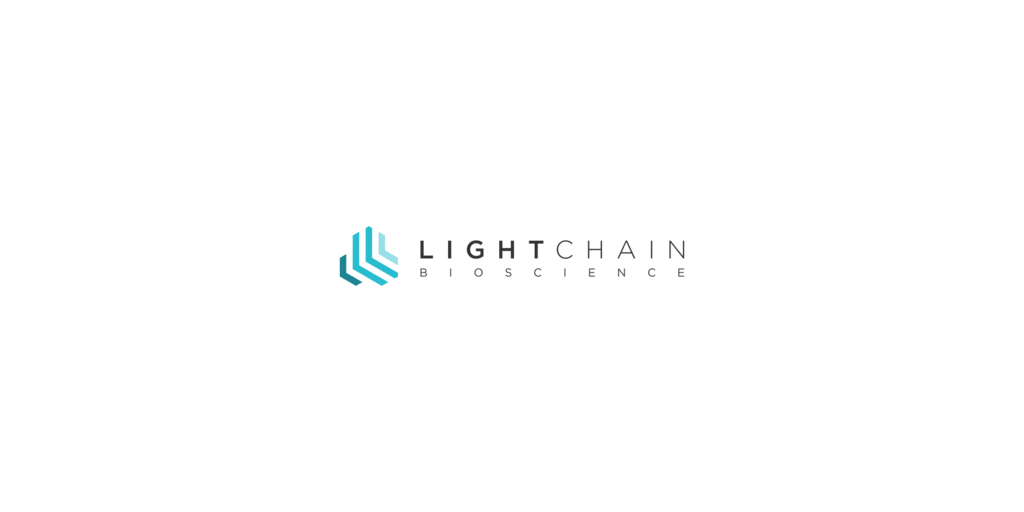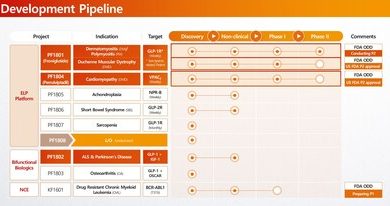GENEVA–(BUSINESS WIRE)–Light Chain Bioscience, a clinical-stage biotechnology company advancing the next generation of bispecific antibodies to treat cancer, today presented positive results from a Phase 1/1b study of NI-1801 as a monotherapy and in combination with pembrolizumab in heavily pretreated Platinum Resistant Ovarian Cancer (PROC) patients. The results were reported in a Proffered Paper oral presentation at the 2025 European Society of Medical Oncology (ESMO) Congress in Berlin.
NI-1801 is a first-in-class mesothelin x CD47 bispecific antibody that selectively targets the innate immune checkpoint CD47 on mesothelin-expressing cancer cells.
The Phase 1b study of NI-1801 in combination with pembrolizumab showed an overall survival (OS) rate at one year of 75.2% in 21 patients at the data cutoff (August 2025), with a median follow-up of 11 months (15 patients alive and 6 patients ongoing). The immature progression-free survival (PFS) rate was 32.7% at 9 months with a confirmed response rate by RECIST¹ criteria of 28.5% and a clinical benefit rate (CBR) of 48%. In the monotherapy Phase 1 study, NI-1801 showed an OS rate at one year of 35.3% in 21 patients, with a median follow-up of 19 months and 7 patients alive at the data cutoff.
NI-1801 was safe and well tolerated as monotherapy and in combination with pembrolizumab.
Platinum-resistant ovarian cancer patients treated in this study received ≥ 4 prior chemotherapy lines, representing the most fragile subpopulation of ovarian cancer patients.
With standard of care chemotherapy, previous studies reported a median OS ranging from 9 to 12 months, in a PROC patient population that received at least one chemotherapy line.²
Jose Saro, MD, Chief Medical Officer, Light Chain Bioscience, said: “We are delighted to report substantial clinical benefit of NI-1801 in this subpopulation of platinum-resistant ovarian cancer patients. The overall survival rate reported for NI-1801 in combination with pembrolizumab is particularly noteworthy in a chemotherapy-free regimen, and it is the first example of a combined immunotherapy approach to show effectiveness in this hard-to-treat ovarian cancer patient population. These findings indicate the potential of NI-1801 to positively impact the management of this devastating disease.”
Professor Thibault de la Motte Rouge, MD, PhD, Research Director, Centre Eugène Marquis, France, and the investigator presenting the data at 2025 ESMO said: “Patients with platinum-resistant ovarian cancer face poor survival outcomes, and current treatment options remain limited, highlighting the urgent need for novel therapeutic approaches. To date, clinical results with immunotherapy in ovarian cancer have been largely disappointing, although the recent Phase III Keynote-B96 trial has shown a benefit with pembrolizumab in patients with early relapsing platinum-resistant disease. In this context, our study demonstrates that NI-1801, administered either as monotherapy or in combination with pembrolizumab, provides durable clinical benefit and meaningful survival improvement, with a favorable safety and tolerability profile. These findings support a therapeutic strategy that synergistically engages both innate and adaptive immune pathways – by targeting CD47 within the tumor microenvironment and blocking the PD-L1/PD-1 axis – as a promising chemotherapy-free approach to enhance immunotherapy efficacy and improve outcomes in this high unmet-need population.”
Nicolas Fischer, CEO of Light Chain Bioscience, said: “These promising results confirm our long-held conviction that bispecific antibodies targeting CD47 have a fundamentally different therapeutic window than anti-CD47 monoclonal antibodies, which have faced major setbacks. These findings showed that, in a challenging subpopulation where immune exhaustion and tumor heterogeneity are pronounced, combining blockade of innate and adaptive immune pathways can overcome the ovarian tumors’ immunosuppressive barriers, improving the immunotherapy success rate, which is traditionally low for this tumor type.”
Details of the Proffered Paper Oral Presentation
Title (#1512O): NI-1801, a mesothelin x CD47 bispecific antibody: Safety and activity as single agent and in combination with pembrolizumab, in heavily pretreated (≥ 4 prior lines) mesothelin expressing platinum resistant epithelial ovarian cancer patients
Presenter: Professor Thibault de la Motte Rouge, MD, PhD, Research Director, Centre Eugène Marquis, Rennes, France
Lecture Date and Time: Monday 20 October – 10:55 – 11:05
About ovarian cancer
Ovarian cancer accounts for approximately 200,000 deaths worldwide annually.² It is a heterogeneous disease, showing major differences in terms of its incidence, tumor behavior, and outcomes across histological subtypes. Treatment options for platinum-resistant recurrence cases are limited, with no effective therapies that significantly prolong the prognosis.
About NI-1801
Light Chain Bioscience’s most advanced asset, NI-1801, is a first-in-class bispecific antibody selectively targeting the innate immune checkpoint CD47 on mesothelin-expressing cancer cells, as a potential treatment for ovarian and other mesothelin+ cancers. NI-1801 is being evaluated in a Phase 1 trial in patients with heavily pretreated platinum-resistant ovarian cancer (PROC). NI-1801 is also being evaluated in a Phase 2 randomized trial in PROC patients having received 1-3 prior chemotherapy lines.
About Light Chain Bioscience
Light Chain Bioscience, based in Geneva, Switzerland, is a clinical-stage biotechnology company developing next-generation bispecific antibodies for oncology and immune-related diseases. Leveraging its proprietary κλ body platform, Light Chain Bioscience designs fully human IgG bispecifics with potent and selective biological activity. Its lead programs include selective CD47 blockers for solid tumors and CD28-targeted antibodies such as NI-3201, a PD-L1×CD28 bispecific antibody designed to restore anti-tumor immunity. Light Chain Bioscience has more than two decades of expertise in antibody development and has brought seven monoclonal antibodies through to clinical development stage. The company is advancing innovative immunotherapies that engage both innate and adaptive immunity to achieve durable clinical benefit. For more information, visit https://www.lightchainbio.com/.
¹RECIST: Response Evaluation Criteria in Solid Tumors
²Sho Sato et al., The New Treatment Approaches for Ovarian Cancer. Cancers (Basel). 2024 Jul 15;16(14):2545
Contacts
Media Contact:
Charis Gresser and Ayesha Bharmal, Brunswick Group
[email protected]
[email protected]

_-_Copy.jpg)
_-_Copy.jpg)



